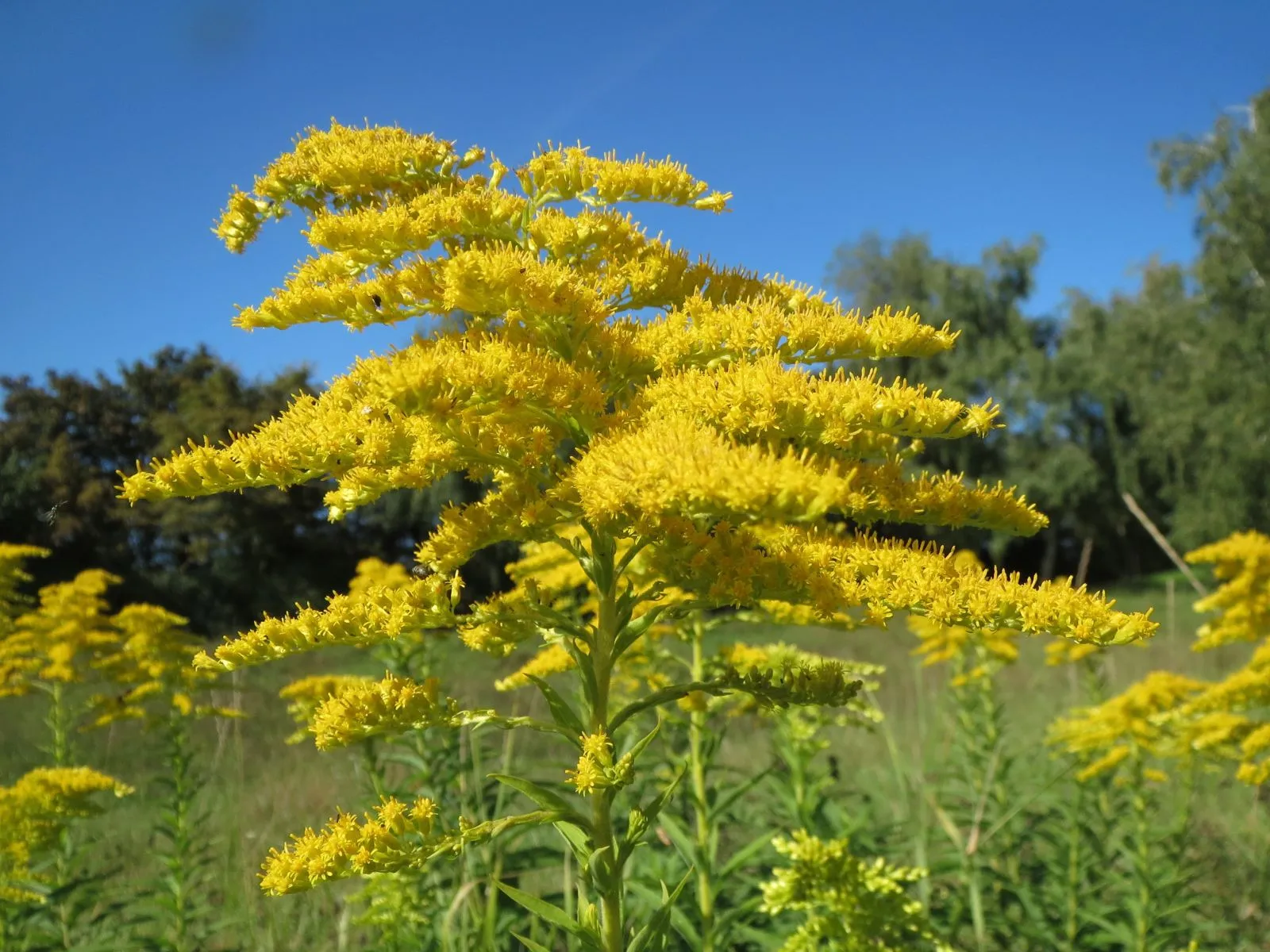Are plants intelligent? This plant suggests they might be!
Published by Cédric,
Author of the article: Cédric DEPOND
Source: Plant Signaling and Behavior
Other Languages: FR, DE, ES, PT
Author of the article: Cédric DEPOND
Source: Plant Signaling and Behavior
Other Languages: FR, DE, ES, PT
Follow us on Google News (click on ☆)

Image Wikimedia
André Kessler and Michael Mueller observed that the plant Solidago altissima reacts in a sophisticated manner when attacked by insects. When beetle larvae devour its leaves, the plant emits volatile organic compounds (VOCs) to alert not only predator insects but also neighboring plants. These neighboring plants, able to detect these chemical signals, prepare themselves by increasing their growth and producing defense compounds, thereby reducing the damage caused by herbivores. This behavior demonstrates that plants do not just respond passively but adapt their survival strategies based on perceived threats.
The researchers also discovered that these plants use light to communicate. They can detect the ratios of red and infrared light emitted by their fellows, allowing them to assess danger. This ability to adjust their response based on environmental information illustrates what researchers refer to as plant intelligence. It is not merely an instinctive reaction but a calculated response, considering the costs associated with herbivory and competition.
According to André Kessler, the absence of a central nervous system does not limit plants' ability to process information. Instead, they use chemical signals to coordinate their reactions. Each plant cell can perceive various light spectra and volatile compounds, enabling sophisticated internal communication. This integration of environmental information and risk anticipation are fundamental aspects of what we might call intelligence.
This still controversial field of research could revolutionize our understanding of plant life and its interactions with the environment. André Kessler concludes: "The question is not whether plants are intelligent, but how they achieve it without a nervous system and the ecological consequences of this."